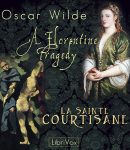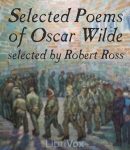
Florentine Tragedy and La Sainte Courtisane
Two short fragments: an unfinished and a lost play. A Florentine Tragedy, left in a taxi (not a handbag), is Wilde’s most successful attempt at tragedy – intense and domestic, with surprising depth of characterisation. It was adapted into an opera by the Austrian composer Alexander Zemlinsky in 1917. La Sainte Courtisane, or The Woman Covered in Jewels explores one of Wilde’s great idées fixes: the paradox of religious hedonism, pagan piety. Both plays, Wildean to their core, revel in the profound sadness that is the fruit of the conflict between fidelity and forbidden love. Written towards the end of his tragic life, these fragments give us a glimpse of a genius at his best: visceral, passionate, personal, poetic. (Summary by Simon Larois) A Florentine Tragedy – cast: Narrator: TriciaG GUIDO BARDI, A Florentine prince: mb SIMONE, a merchant: Simon Larois BIANNA, his wife: Ruth Golding La Sainte Courtisane – cast: Narrator: Ruth Golding First man: mb Myrrhina: Philippa Second man: L.French Honorius: woggy298 Edited by Ruth Golding [chương_files]
